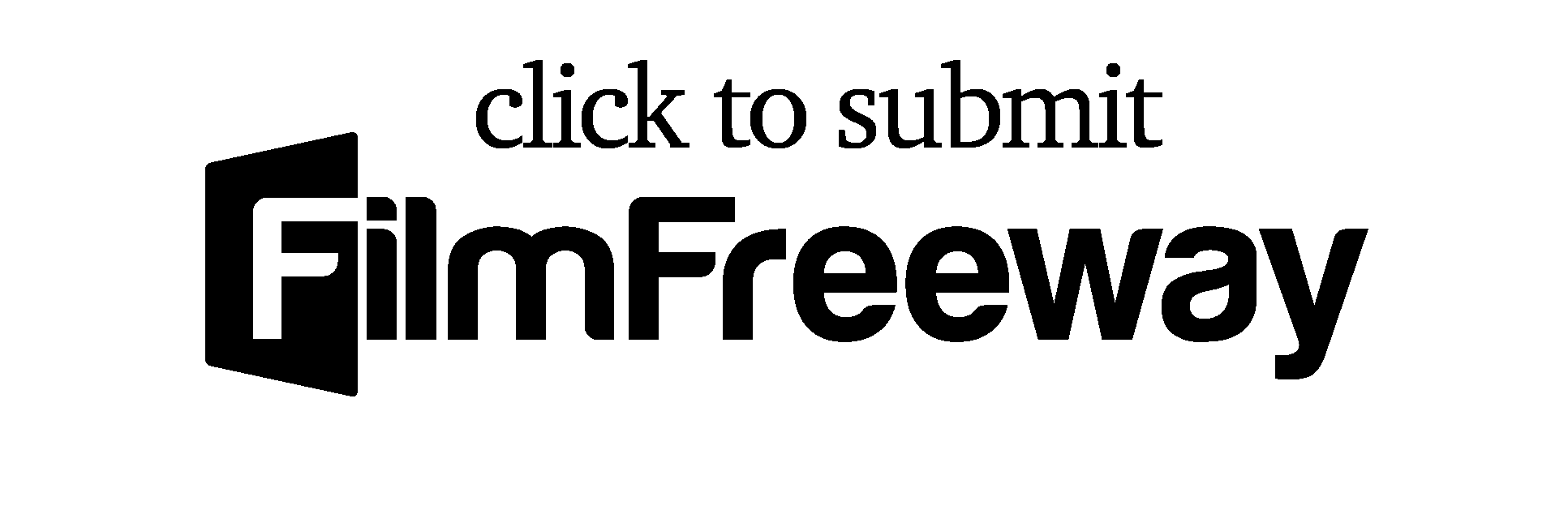
A Philosophical & Aesthetics Analysis
by K. Akrivos, PhD - “Little Yellow Flower”
(director - Chien-Ping Lin)
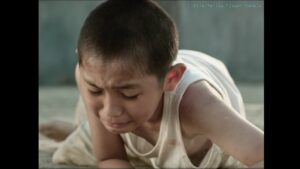
Little Yellow Flower by Chien-Ping Lin is a great film that describes the consequences of parental violence and abuse on a child. It points out the severity of the psychological trauma it causes. This trauma determines not only a child’s psychological health but his whole life as a destiny.
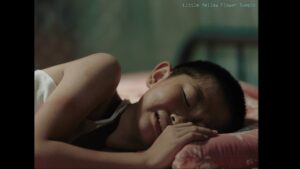
A father brutally abused his child and caused him deep psychological wounds, traumas. Now the father is paralyzed and completely dependent on his son's care. The scenario envisages a total reversal of power relationships and a change of roles.
The father who used to be the indisputable, dominant protector and unfortunately abuser of the weak and dependent child is left completely powerless due to a disability paralysis. He is now in the absolute control and care of his son. In this condition we can watch the mood swings and inner conflicts of both father and son.
Chien-Ping Lin masterfully explores the limits of father-son relationship, the balance between power and care and points out how much it is defined by violence and abuse. With excellent cinematography, a deliberately slow pace of development that meaningfully focuses on the details, wonderful performances by the actors, the director creates a film in which everything makes sense.
Chien-Ping Lin in telling a story between a father and a son uses imagery, like the landscape, in an extraordinary way; not as a simple background, but as an active element of the story. He makes excellent use of strong contrasts such as the tenderness and beauty of the yellow flower contrasted with the roughness of the landscape, making them meaningful. Accordingly he ascribes symbolic properties to other objects of the film such as the sun, the ants, the rocks, etc.Even the sun is cold and ambiguous. The minimalism of the images highlight and emphasize the human drama. Ants appear repeatedly and seem to act as a symbol as well, signifying the presence of evil, that something has gone wrong or something bad is about to happen. The aerosol that is always insufficient seems to fix something but in reality it only poisons. It is often used to solve a problem much deeper and more serious, more incurable.
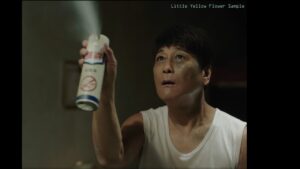
Even the son's occupation of correcting visual defects seems to have a second meaning; he who is an expert in focusing deep and correcting images cannot correct or even manage his own wound. The paralyzed father has a ceiling fan where the sun should be. Diapers and paralysis, inability to care for oneself, are directly opposed to the images of the authoritarian young father, who did not hesitate to brutally abuse his child.
The battered child, helpless, cries bitterly. But now a swarm of ants has taken over the ceiling and portends something deadly. It is the evil that has occurred, the trauma that is never forgotten and returns more acute in the present.
Yellow flowers always signify the opposite, the good side, a reminder that there is still tenderness, love. A meaningful transition from the deepest focus in the core of a flower to a creepy ant hole inside a rotten pumpkin.
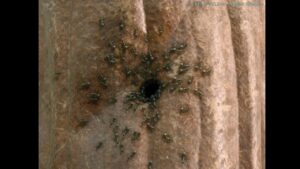
Screams and hints. The ants, perhaps as living guilt, are now attacking the old, helpless father, who lies on the dry, waterless soil.
A grandiose zoom out shot from a drone takes us away to a distance that the father is annihilated and adopts the dimensions of the insignificance of the ant.
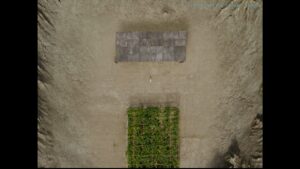
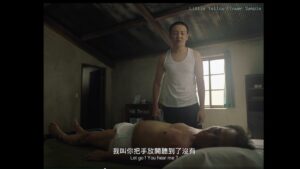
And then, as the camera is on the son, the dowry of violence, the residue of abuse is evident on the young man's face. This unrestrained anger that is not related to the difficulties of the present, but draws its origin from the distant past of paternal violence and child abuse.
Chien-Ping Lin shows us expressively how inescapable this wound is. How a trauma is transferred and becomes the son's destiny and present. How much the father's violent behavior has prescribed and determined his own behavior.
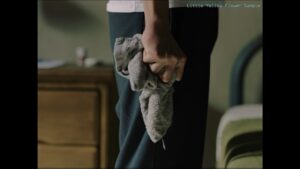
Now that his father is completely weak and dependent on him as his caregiver, the son's inner conflict becomes apparent; on the one hand the moral imperative to take care of his father and on the other hand the shadow of abuse recorded in his memory and the unquenchable repressed anger.
Anger is stronger than self-restraint dictated by morality, reason and spontaneous care for his father, and so it prevails and overflows. Now the son repeats or replicates the same hysterical crisis for no real reason. He hits the bed with great intensity as if imitating the movements his father made when hitting him.
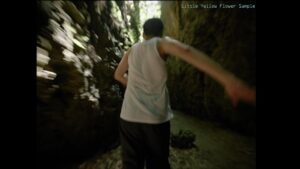
A sensational escape shot ensues. The son runs limping through a craggy passage between rocks. In this limp running, his psychological disability is portrayed.
It is as if he is running to escape from his own experience, from the violence that he experienced and left him crippled particularly in his soul. He runs to escape from what he experienced as a child when in his childhood carelessness in spraying the ants he unwittingly destroyed the flowers of his father's plantation.
Then his father, with all the force that his physical superiority and vulgarity allowed him, inflicted brutal violence on the defenceless child. The child clenches his hands in terror expecting to suffer the beating that his father applied with all his might.
Now the son is grown up and finds it difficult to meet the needs of his daily life. Trauma and anger haunt him. In his office even the tapping on the keyboard reminds him of his father's beating. Anger is ever present and ready to overflow. It is not clear whether he is really spraying the father with the aerosol against an army of ants attacking him or if it is just his hallucination.
It is not clear either whether it is an act of protecting the father or poisoning him. Because it could be both, since these conflicts torture his mind. He wavers between his natural disposition to care and his cataclysmic anger. These great images of craggy hills that are skillfully inserted picture the geography, the rifts of his soul.
This anger does not comply with a normal process of caring for a paralyzed elderly person and especially a father. The tension experienced by the son, which causes him to scream for no apparent reason, emanates from the repressed anger and trauma due to his abuse. The weakness that his father- once omnipotent and abusive- has fallen into instigates strong conflicting feelings and dilemmas in him.
On the one hand, the abused son feels morally obliged to take care of his father on a daily basis but he is also naturally motivated to do so. On the other hand he feels anger and hostility, even hate, springing from his childhood experiences. So daily care turns into a daily torture of dilemmas and conflicts, beyond the labor uncomfortableness it includes. Respectively, it is equally torturous for the father, who resists care, clutching his diaper as hard as he can. The father feels embarrassed and ashamed for the physical weakness he suffers from.
He is also likely to feel guilty about his abusive and violent stance towards his child that is now taking care of him in order to survive. Both son and father try to find ways to survive and live together in this daily torture.
Concluding, what Chien-Ping Lin masterfully offers us in his film Little Yellow Flower is an elaborate, enlightening and poetic description of parental abusive violence on children and its impact.
In doing so he delivers a valuable message. Parental violence is not an unpleasant event that is left behind and forgotten by a child. It causes a deep wound that remains and irrevocably haunts his life forever. It is like a curse which does not go away and locks the child in deep anger and unanswered complaints. Parental violence has tremendous power to turn a child into an abusive parent as well, instigating what is called a cycle of violence.
-Short Encounters, 2023-

